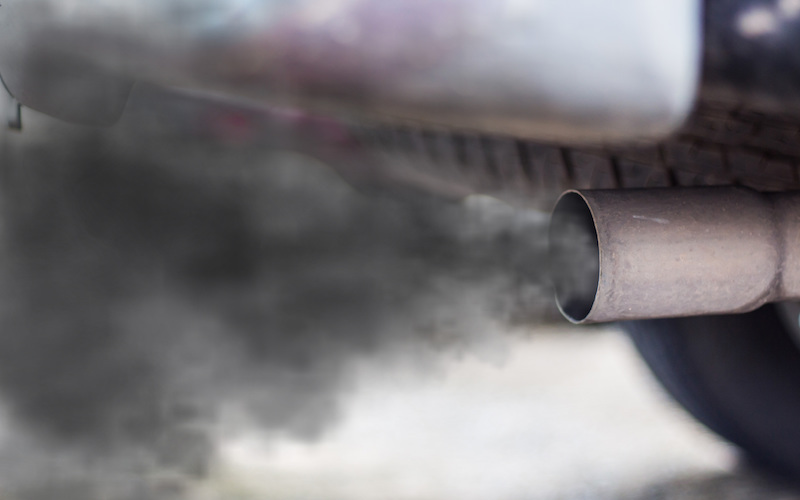
The delays are projected to cost Massachusetts $519.2 million in public health impacts and result in up to 33 premature deaths from air pollution-related disease. Photo by Shutterstock
April 14, 2025 (Boston, MA) – The Massachusetts Department of Environmental Protection announced a two-year delay to enforcement of the Advanced Clean Trucks (ACT) program. However, this enforcement delay will only be offered to manufacturers who desist from unfairly displacing their compliance responsibilities onto their dealers and customers.
“It’s disappointing to see a delay in enforcement of a fully achievable rule—especially one that’s already been approved and is critical to reducing dirty air pollution and protecting public health,” said Paulina Muratore, Conservation Law Foundation Director of Transportation Justice and Infrastructure. “Still, we’re encouraged that Massachusetts is not backing away entirely as communities across the state—especially those near highways and freight corridors—can’t afford further delays in cutting pollution and accelerating the transition to zero-emission trucks.”
This enforcement delay follows months of lobbying from out-of-state legacy truck manufacturers who, despite having years to prepare for compliance with the program, have shirked their legal responsibilities, displaced compliance obligations onto their dealers and customers, and petulantly refused to engage with compliance flexibilities and collaborative efforts to successfully meet the program’s requirements.
In November, Governor Healey joined eight other governors in sending a letter to urge truck makers to proactively use the multiple pathways and flexibilities available to them in order to attain compliance. The letter specifically emphasizes the feasibility of the standard and that “ACT does not place any purchasing requirements on dealers or fleets,” despite what manufacturers are telling their dealers and customers.
This is not the first pollution reduction program that MassDEP has delayed in recent months. In October, MassDEP announced a one-year delay for the implementation of the Heavy-Duty Omnibus (HDO) program amid heavy pressure from truck makers. Taken together, analysis by the Union of Concerned Scientists indicates that the HDO and ACT delays are projected to cost Massachusetts $519.2 million in public health impacts and result in up to 33 premature deaths from air pollution-related disease.
Massachusetts adopted the ACT and HDO standards in 2021 to tackle deadly diesel pollution with gradually increasing supply targets for new zero-emission trucks and standards to reduce the most dangerous and carcinogenic pollutants from new diesel engines. Both regulations include ample flexibilities that were advocated for and agreed to by truck makers to ensure they are able to comply effectively.
In response to today’s announcement, clean transportation leaders and advocates released the following statements:
“While we are disappointed in this delay in enforcement, we recognize that this is not a ‘no-strings-attached’ giveaway to out-of-state polluting interests,” said Vickash Mohanka, director of Massachusetts’ Sierra Club chapter. “We urge the Healey administration to conduct the strongest-possible scrutiny of manufacturers’ sales practices in order to ensure compliance with the commonwealth’s vehicle pollution standards.”
“The Advanced Clean Truck rule is imminently achievable, which is why delaying its enforcement is so regrettable,” said Jason Mathers, Associate Vice President for the Zero-Emission Truck Initiative at the Environmental Defense Fund. “The facts are clear: zero-emission trucks are ready today for most fleet operations, existing tax credits and incentive programs make these vehicles cost-competitive today with diesel alternatives and the ACT targets do not impact the ability of fleets to buy diesel vehicles if they so choose. Massachusetts residents cannot afford to wait. We urge the Governor to advance zero-emission solutions that will reduce asthma rates for our children now and contribute toward a cleaner, healthier future for all.”
###
